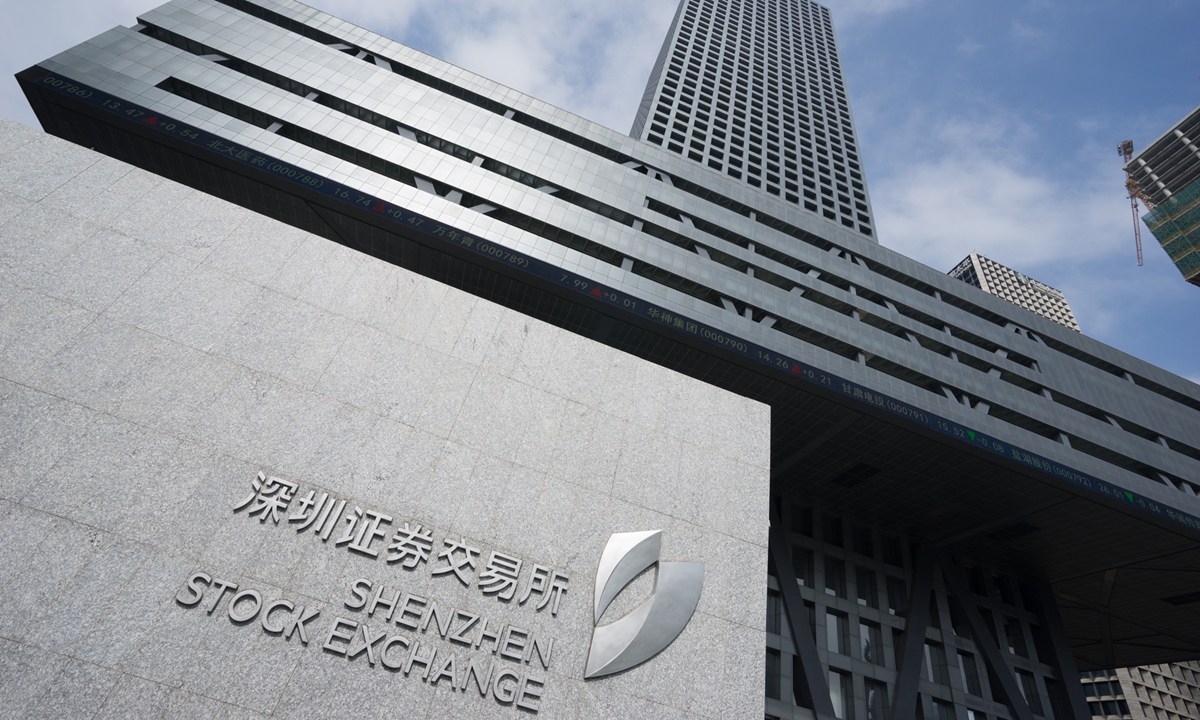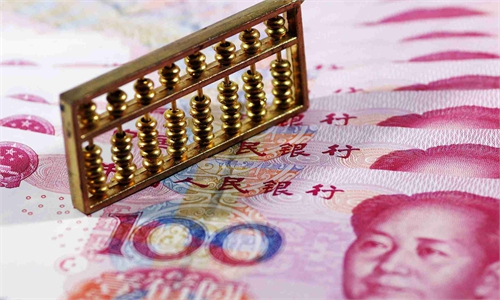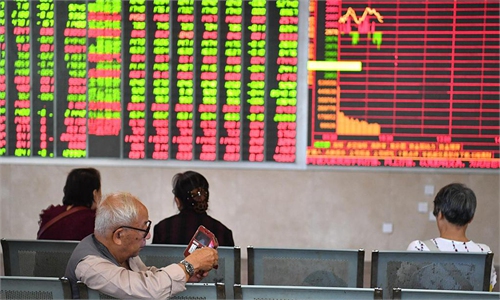
Shenzhen Stock Exchange Photo:VCG
China Securities Depository and Clearing Corporation Limited (CSDC) on Thursday announced the axing of transfer fees for A shares, the first such cuts in nearly seven years, in a fresh move to lift investor confidence amid recent weak performances.
Effective Friday, the transfer fee for stock trades on the Shanghai and Shenzhen exchanges will be halved from 0.002 percent to 0.001 percent per side of the consideration of the transaction amount.
The transfer fee for Chinese mainland shares traded in the Beijing market will be cut from 0.0025 percent to 0.001 percent.
The announcement is intended to foster the stable and healthy operation of capital markets, reinvigorate the market through lowering costs for investors, and ramp up the support for the real economy, CSDC said in a brief notice on its website.
The previous downward revision was in August 2015, when the mainland equity market was grappling with the fallout from a massive rout over the preceding two months.
The reduced transfer fees are an indication that the authorities are taking heed of the capital market, said Yang Delong, chief economist at Shenzhen-based First Seafront Fund Management Co.
Yang cited a number of favorable policy announcements spanning consumption, infrastructure construction, reduced reserve requirements and most recently the transfer fee cut. "All these would help restore market confidence and foster a market rebound," he remarked.
A meeting of the Central Committee for Financial and Economic Affairs on Tuesday called for market expectations to be well guided and policy orientations and principles to be clarified, so as to stabilize market confidence.
The Thursday announcement instantly went viral throughout Chinese social media, becoming one of the top search topics on Twitter-like Sina Weibo, with many web users hailing it as one of the most substantial good news for mainland shares recently.
A shares have recorded wild swings this week, with the benchmark Shanghai Composite Index plunging below the key support level of 3,000 points on Monday before falling further to below 2,900 points on Tuesday.
The benchmark made an impressive reversal to crawl back the 2,900 level on Wednesday and continued to extend gains on Thursday.
The tech-heavy ChiNext index posted its biggest single-day rally in about six years on Wednesday before shedding 1.83 percent on Thursday.
In a sign of continued fragility, some 1,200 stocks closed higher on Thursday, while more than 3,400 stocks finished in negative territory.
The transfer fee is a major type of transaction costs for A share investors that also include brokerage commissions, which now vary between brokers and stamp duty on stock transactions.
The last cut in stock trading stamp tax was in April 2008, when the Chinese government announced a slashing of duty from 0.3 percent to 0.1 percent.
In September 2008, it was announced that stamp duty would only be levied on sales of shares, while purchases of shares were exempt from the tax.
It can't be ruled out that stamp duty on A shares could be slashed further, if the market decline deepens, Lian Ping, head of Zhixin Investment Research Institute, told the Global Times.
But the stamp duty levy is only a tiny portion of total transactions costs, Lian said, casting doubt over whether a cut in stamp tax - many retail investors have long been expecting as a turnaround enabler - could boost A shares.




